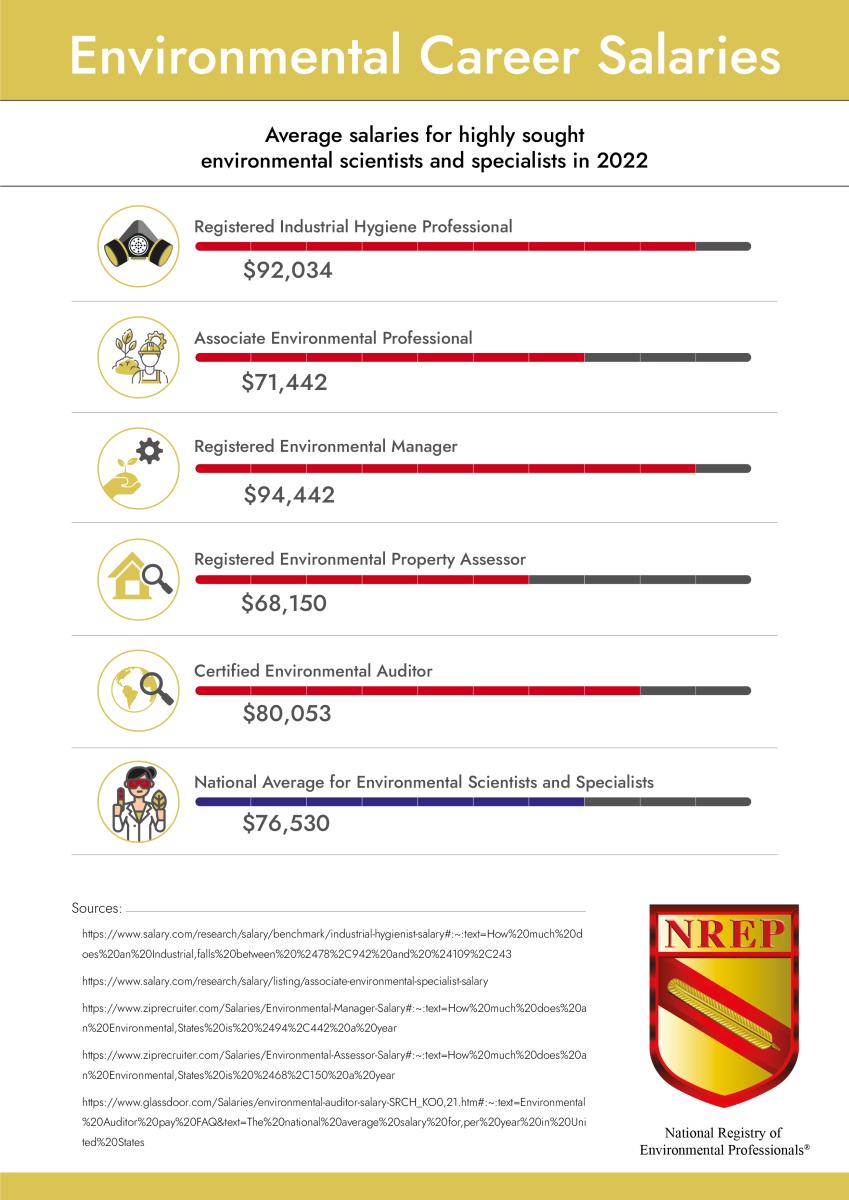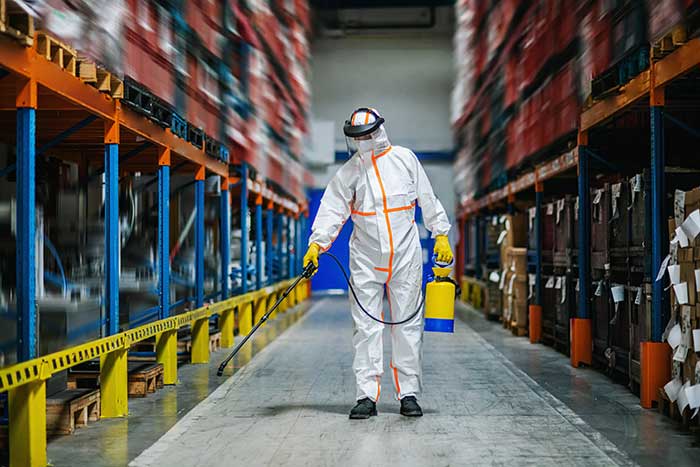How Can I Become an Industrial Hygiene Specialist?
Industrial hygienists are vital to workplace safety. They protect the work environment from industrial chemicals and processes and may find themselves working in a variety of situations. Occupational Health & Safety Specialist is another name for an industrial hygienist.
Is Industrial Hygiene a Good Career?
Industrial hygiene is a well-paid field with an Industrial Hygienist salary range of 40,000 to 102,980, but the demand for Industrial Hygienists and Occupational Health & Safety Specialists is expected to decrease in the coming years. Specialists with an advanced degree, certification, or technology skills will have better employment opportunities. The best paid jobs are with the federal government, manufacturing and professional and scientific services.

Educational Requirements for Industrial Hygiene Specialists
Industrial hygiene specialists require a bachelor’s degree as a minimum. Most often, they hold a BS or BA in mechanical engineering, chemical engineering, chemistry, physics, biology, industrial hygiene, industrial safety, or a related field. These occupational health and safety professionals need to understand the effects of chemicals and substances in the workplace, on the body and environment. Training in environmental law or medical experience is helpful, but not required.
Occupational health and safety professionals with advanced degrees or those certified as a Certified Industrial Hygienist or Certified Associate Industrial Hygienist will usually have more employment opportunities. A master’s degree with training in hazardous materials, public health, health and safety law, and other related areas hold the most potential.
Certification as a Certified Industrial Hygienist or Certified Associate Industrial Hygienist is not required, but it is recommended for all industrial hygiene specialists seeking career advancement.
For certification as a Certified Industrial Hygienist, an industrial hygiene specialist needs a bachelor’s degree and four years of professional experience with references.
The National Registry of Environmental Professionals® also offers a Registered Industrial Hygiene Professional (RIHP) program requiring a bachelor’s degree and three years of work experience. Three years of experience directly related to industrial hygiene can be substituted for each year of an academic degree program. (A bachelor’s degree equals 12 years of experience.)
Certification as a Certified Industrial Hygienist or Certified Associate Industrial Hygienist will become more important in the future as job competition heats up.
Important Qualities for Industrial Hygienists
Industrial hygienists must be detail orientated and have a strong science background. Additionally, Industrial Hygienists need:
- Excellent communication skills
- Keen observation skills
- Ability to detect problems and report them
- Diplomacy and leadership skills
- Ability to work with management and colleagues
- Strong computer skills
- Attention to detail
- Record keeping skills
- Ability to work as a team
- Strong organizational skills
- Ability to use specialized equipment for monitoring hazards

What Industrial Hygiene Specialists Do
Industrial Hygiene Specialists work in a wide variety of job situations. Many work as government inspectors ensuring that businesses and individuals follow workplace safety rules and safe handling of hazardous materials. They might fulfill similar roles for the CDC, military, colleges and universities, or scientific institutes.
Other Industrial Hygiene Specialists work in factories or on construction sites where they are responsible for protecting employees with a safe workplace. They identify health hazards and risks present in the workplace and communicate the problem to management. Industrial hygienist employment may include other tasks:
- Conduct regular inspections to identify risks in the workplace
- Develop action plans and programs to provide a safe workplace
- Provide training to employees on workplace safety
- Investigate accidents, workplace injuries, and deaths and write reports and recommendations based on the findings
- Ensure that personal protective equipment is available and in good condition
Related Career Paths for Industrial Hygienists
Professionals interested in training or education in industrial hygiene also have other career paths open. They can become a health and safety engineer or pursue a career as an occupational health technician.
Health and Safety Engineer
Health and safety engineers develop systems and programs to prevent illness or injury. The field has good anticipated growth estimates and a median salary of 88,510. This is higher than the median salary of industrial hygienists at just over 70,000.
Occupational Health and Safety Technician
With a high school diploma and some on-the-job training or an associate degree, you can begin as an occupational health and safety technician. These technicians work with Occupational health and Safety Specialists to promote workplace safety. The job has good potential growth and a median salary of $49,960 per year.
